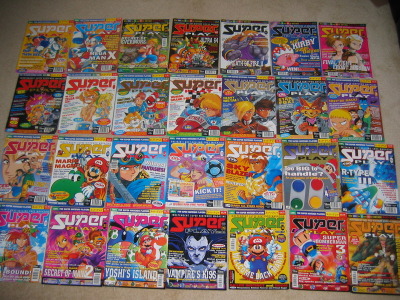
Super Play Magazine was a UK publication that ran 48 issues from 1992-1996. It’s been referred to by some Super Nintendo fans as the “SNES Bible.” About 10 years ago I was lucky enough to win an auction for 45 of the 48 issues. It’s a magazine worthy of the hype — it’s the perfect companion to any SNES library. I read through the issues in order cover to cover from Halloween to Christmas back in 2006. It was awesome. But nothing compared to the moment I reached issue #42. For right there on the front cover it boasted something that made my heart race just a bit faster. A Top 100 list. Now, I know everyone has varying opinions on “top” lists. But for me, as long as the list is done in good fun and the author doesn’t act like it’s the end-all, be-all, then it’s all good. I find top lists fun to browse through. Ever since I read EGM’s Top 100 Video Games list in their 100th issue (November 1997), I’ve loved the idea of lists. As a matter of fact, for the past 10+ years I’ve been actively working on compiling a list of my own personal SNES favorites. I hope to share that at some point before 2017 is out. But for now, I’m proud to convert over Super Play’s Top 100 list from April 1996.
As you read through this list, may you recall fondly why the SNES is one of the very best of all time. And hey… may you even find a game or two you never heard of, or overlooked, or disregarded in the past. It’s all part of the fun and joy that comes with reading a ‘Top’ list. So then, without further ado…
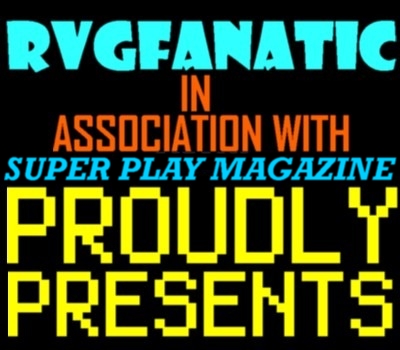
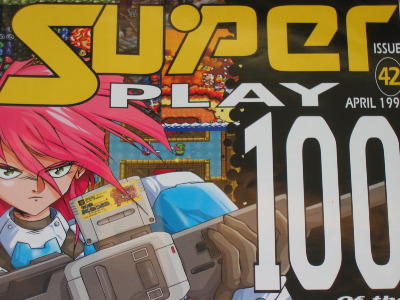
100. COOL SPOT (Virgin) 82%
Before Dave Perry was selling the cartoon rights to garden-based invertebrates for millions of dollars, he was designing platformers like this for Virgin. It’s a twist — and there has to be a twist, or the game’s Just Another Platformer, right? — is Spot’s size: he’s a veritable Tom Thumb in the game world, making for a lengthy supply of size comparison japerings. The graphics are topper too, mind, and as a whole it stands as one of the few non-Mario platformers worth anything more than a passing glance.
99. SAMURAI SPIRITS (Takara) 84%
If any game company is synonymous with any one particular type of game, it is Takara and beat-‘em-ups. The two go together like Princess Di and divorce papers, and while the Japan-based coders have released many disappointing examples in their time — World Heroes and Art of Fighting, to name but two — Samurai Spirits (AKA Samurai Shodown) is one victory. This SNES version lacks the screen-scaling of the coin-op/Neo Geo original, and it’s not as polished as we would have liked, but it retains enough of the original’s flavor to make it worthwhile.
98. HEBEREKE’S POPOITTO (Sunsoft) 86%
Sunsoft’s second ‘tribute’ to Super Puyo Puyo (their first was Hebereke’s Popoon) sees them getting just that little bit closer to its greatness. Popoitto uses the same link-four-colors concept and peppers the gameplay area with a number of nasties which have to be removed before you can even think about moving on to the next stage. And before you ask, no, we’ve no idea what Popoitto means, either.
97. UNIRALLY (Nintendo) 85%
The only SNES-only game from Scottish coders (and Dream Team members) DMA Design, Unirally (or Uniracers) is a fine example of original gameplay and innovative graphics. Using a process not far removed from Rare’s ACM, the unicycles call upon countless frames of prerendered animation to give a splendidly vivid, if occasionally headache-inducing, look to the thing. Perhaps the fastest game around, the enjoyment of hammering around loops and twirls is heightened by the split-screen two-player mode, which makes all the difference.
96. SPIKE MCFANG (Bulletproof) 85%
Originally released in Japan as Dracula Kid, The Twisted Tales of Spike McFang is cuteness incarnate. It qualifies more as an arcade adventure rather than an ARPG, and its action-led style allows it to be a diverse little package, one moment seeing you white-water rafting, later seeing you walking rafters battling spiders. The magical attacks, based around a playing card theme, are novel, and it all adds up to a very original title.
95. DONKEY KONG COUNTRY (Nintendo) 90%
It’s interesting to note that when Nintendo gave Rare the license to produce a game on their behalf, they chose not to let them have Mario to play with, but Donkey Kong — a character with nowhere near the same amount of kudos nor following as the platform-pounding plumber. Did they not trust our Warwickshire-based chums to turn in an effort to do Mazza justice? We could pontificate all day. What’s important is that Rare did a decent job, especially when you consider at the same time they created a new era of SNES graphics to boot.
94. THE LOST VIKINGS (Interplay) 84%
Heaven knows where Interplay found the inspiration for this, a platformy puzzle-type thing starring three rough-hewn bearded geezers, but here the game is, and a compelling little thing it turns out to be too. You tackle each level in a sort of back-and-forth fashion, switching between the vikings in turn as you reach bits which require their individual skills to overcome. Yes, it probably sounds a bit cruddy, and admittedly the whole thing has something of a Commodore 64 game feel to it, but it’s original.
93. SUPER PARODIUS (Konami) 86%
Essentially Gradius on hallucinogens, with delightfully remixed versions of a number of well-known pieces of music and boss characters to make you weep with disbelief, this is an old shoot-‘em-up with lots going for it. If you’re not familiar with Gradius, well, what the heck have you been doing for the last ten years? Pressing flowers? We shall explain: It’s a forced horizontally scrolling shooter whose most novel contribution to the genre is the concept of ‘multiples’ — little pods which follow your ship and act as companions. Do you see?
92. DESERT STRIKE (Electronic Arts) 90%
Fact: the only people who claim that military hardware is fascinating are dull people. (Unless we’re talking fantastical military hardware, of course — give us a 50 foot tall assault suit and watch us smile). And so it comes as little surprise that Desert Strike, in which you fly a modern-day combat helicopter, is not as fast-moving or exciting as fantastical shooters. Dessy might fairly be termed a thinking man’s shoot-‘em-up, in fact, but its challenge and distinctly un-PC themes make it hugely appealing.
91. KIKIKAIKAI (Natsume) 88%
Capcom’s Gunsmoke and Commando coin-ops paved the way for countless games presented in the same vein, and Kikikaikai (AKA Pocky and Rocky) is one of the finest examples you’ll see on the SNES. More difficult than its slightly prettier sequel (which was published by Ocean in the UK under the name of Pocky and Rocky 2), it chronicles the exploits of a young, reifu-throwing sorceress and her cuddly raccoon companion. As you’d expect from a game with a name like this, it’s packed to the rafters with Japanese weirdness, and we love it dearly.
90. SIDE POCKET (Marubeni) 86%
The game popular with fat lager-fiends and sponging students alike proves almost as playable in its SNES form as it does after a few cherryades down at the local watering hole. It’s a great interpretation is Side Pocket, made all the more enjoyable by the fact that you don’t have to get 50 pees from the bar nor argue over who’s going to rack them up this frame. Oh, and it has one of our favorite speech samples ever (an ill-sounding woman who announces the title of the game as if she herself has had one too many cherryades).
89. SUPER STAR WARS (JVC/Virgin) 89%
When ex-editor Matt Bielby said that the music in Super Star Wars was “almost good enough to justify the price of the game on its own,” he wasn’t just being his typically over-enthusiastic self: this is a landmark in SNES music, capturing the mood and feel of the motion picture like no other film license game before or since. It’s easily the most fun game of the trilogy, too, with a fatter-than-Jabba wodge of levels, endearingly recognizable graphics and slick platform shoot-‘em-up gameplay.
88. BREATH OF FIRE (Capcom) 80%
It took a long time getting a Western release (18 months, to be precise), but the wait turned out to be just about worthwhile. Forget about it providing anything like the involvement of Square’s FF series because it comes across more as a clone than a fully-fledged attempt at taking them on equal terms. Instead look at it as an above average RPG with its own fair share of talking points, notably its clever day-to-night transitions and a healthy clan of likable, if rather underdeveloped, characters.
87. WORLD MASTERS GOLF (Virgin) 80%
There’re enough golf games on the SNES to fill a pair of Jimmy Tarbuck’s plus-fours, but this, the first effort by a UK development team (Arc Developments, if you’re interested), leaves them all choking on sand as it chips delightfully out of the bunker and straight into the ‘cup.’ With corky Mode 7 flybys, four courses (Aldan Forest, Cranfield Lakes, Marston Beach and Victoria Plains), a workable ‘three-press’ power bar system, and generally pleasant presentation all-round, it’s everything the ardent fan could ask for.
86. XANDRA’S BIG ADVENTURE (Namco) 85%
If you’ve ever opened a packet of Jelly Babies, picked out a green one, held it between thumb and forefinger and thought, ‘I wonder what it would be like to be this green jelly feller,’ then you should A) consider taking up some form of medical help, and B) buy Xandra’s Big Adventure. Xandra, see, is a little guy made of green jelly, and he takes up a pitchfork in an umpteen level platformer that’s filled with the kind of innovation you’ll only find in Japanese software. Keep an eye out for Whirlo, the European version which wasn’t released in the UK.
85. ULTIMATE PARODIUS (Konami) 85%
There’s little to say about Ultimate Parodius other than that it’s an improvement over the original (yes, even though it scored one percent more in our review) but not quite up there with the latest installment (yes, even though we gave that game two percent less) which you’ll find further up the list. It’s all a trifle confusing, we admit, but at the end of the day the review scores here are pretty irrelevant — some of the older games have aged better than others, and… oh, just trust us, okay?
84. JURASSIC PARK (Ocean) 89%
Licensemeisters Ocean inevitably snatched the rights to Spielberg’s T-Rex of a movie and surprised us all by delivering a game which is not only entertaining but fairly original, too (which is more than can be said for Sony Imagesoft’s Jurassic Park 2). Incorporating Gauntlet-esque outdoor bits with a selection of indoor sections rendered á la Wolfenstein, JP presents a series of tasks which add up to a well-rounded arcade adventurey challenge.
83. PUGSLEY’S SCAVENGER HUNT (Ocean) 90%
Ocean were one of the first UK-based outfits to really get behind the SNES, and it didn’t take them long to coax wonderful things out of it. Addams Family Values II: Pugsley’s Scavenger Hunt, to give it its full name, was early evidence that Brit coders could do stuff to rival the best of what Japan had to offer, with its magnificent use of color and ingenious presentation (check out the level which takes place inside Granny’s crystal ball for proof). While not nearly as player-friendly as any Mario game, this hasn’t aged badly at all.
82. RAMPART (Electronic Arts) 79%
The best video games, some say, are those where more than two or more people can take part at once. While RPG fans would contest this claim with their biggest +1 Swords of Chaos, Rampart illustrates perfectly just how much can be gleaned from a concept once you throw another player into the mix. A two-player conversion of Atari’s three-player trackball coin-op, Rampart‘s a game which tests both fast-paced shooting accuracy and Tetris-like building skills. It is a unique game and has unjustly gone dismissed by most SNES owners.
81. SECRET OF EVERMORE (Square Soft) 81%
The long-awaited attempt of Square Soft’s American arm to produce something to rival Secret of Mana turned out, perhaps inevitably, to fall some way short of those magical standards. There’s still quite a bit here to get excited about, of course, notably the combat system (smooth and fast-paced), the atmospheric sound effects (Wil likes the noisy market scene) and the alchemy principle (whose mix-and-match spell-making replaces the more common simpler methods in just about every other RPG). And it’s out in the UK.
80. NFL QUARTERBACK ’96 (Acclaim) 89%
To quote Tony’s flatmate Will Groves, who guest reviewed this in issue 40, “As usual, non-gridiron fans will take a lot of convincing but anyone who knows the game and has enjoyed Madden in the past might want to consider sacrificing just a tiny bit of the Fat One’s on-field experience for the more managerial/coaching experience of NFL QBC ’96.” What the scruffy urchin’s trying to say is that this is the best American footy game on the SNES. He just gets a little bit mixed up sometimes, bless him.
79. WORLD LEAGUE BASKETBALL (HAL) 84%
Way before NBA Jam strode onto the court with its size-16 Nike Air Maxes, this was the best basketball sim on the SNES by a fair chalk. Making full use of Mode 7 to spin and scale the court — and induce vomiting in ex-editor James Leach’s case (yes, really) — it gets a trifle confusing following the action for the first hour or so of play, but give it time and it gels to form a mostly satisfying sports sim.
78. THE CHAOS ENGINE (Bitmap Bros) 89%
Most video game programmers are happy to remain anonymous apart from a credit at the end of their games. Not so the Bitmap Brothers, who insisted upon getting their mugs in anywhere and everywhere. Their desires to be famous aside, they make good games, and this is one of ‘em. It’s Gauntlet for the ’90s, except with only two players and, well, much fewer levels. What’s especially commendable is that if you don’t have a human companion kicking about you can opt for a CPU-controlled variety, whose behavior is remarkably convincing. This game is known as Soldiers of Fortune in North America.
77. OGRE BATTLE (Enix) 80%
It was hard to believe that sound as lush and graphics as sumptious as those in Ogre Battle could belong to a mere strategy game. Even a slight lack of involvement during the actual battles couldn’t deter a pointy-hatted Zy from extolling its virtues. Should you be fluent in Japanese, you could replace Ogre Battle’s entry with its oft delayed sequel — Tactics Ogre which surpasses it in every department. As there seems to be no sign of it appearing here though, Ogre Battle still wins out as the best-looking fantasy strategy game available.
76. JUNGLE STRIKE (Electronic Arts) 83%
The Strike games — Desert, Jungle and Urban — fall into that horribly cliched category of you’ll either love them or hate them. Some gamers — mostly hardcore arcade fans — simply can’t abide the way they limit your munitions and fuel, meaning that you’re always working against the clock and a finite amount of times you can pull on the trigger, while those of a more strategic bent find the approach invitingly taxing. Us? We’re quite partial to a spot of Strikeage, and feel this is the best of the trilogy on the SNES.
75. MORTAL KOMBAT II (Acclaim) 90%
Perhaps the biggest grumble ever — bigger even than “Waaagh! Why aren’t we getting such-and-such RPG in the UK?” and “Why can’t I ‘be’ the bosses in Street Fighter II?” — must be “Why isn’t there any blood in Mortal Kombat?” Such gripes were more forgivable then most, though — after all, the gore and violence was MK’s main selling point, despite whatever Williams would like to believe to the contrary. This MK2 conversion pulled over all of its coin-op counterpart’s juicy bits to become a worthy little fighting game.
74. STREET RACER (Ubi Soft) 91%
There have been many occasions when we’ve found our jaws collecting fluff off the carpet. And second only to Ollie’s ability to consume an entire packet of chocolate digestives in three seconds flat in the jaw/floor interfacing department is the four-player split screen mode of Street Racer. Four independent Mode 7 windows running at speeds in excess of Super Mario Kart, thanks to its “Look, ma! No Super FX chip!” coding, cement Racer‘s inclusion in the Top 100.
73. EARTHWORM JIM (Virgin) 91%
Created by Dave Perry’s hand-picked team of programmers and designers, Shiny Entertainment (of whom Nick Jones, who programmed SNES Alien 3 while still at Probe, is one, video game trivia fans), Earthworm Jim can justifyably claim to be the first ever game to come close to looking like a cartoon. It could also lay claim to being one of the most imaginative games to reach the SNES, and proves that it is possible to make video games genuinely humorous.
72. SUPER SMASH TV (Acclaim) 84%
Super Smash TV was the first game Ed ‘Mortal Kombat’ Boon produced when he joined Williams’ coin-op division, a fact which should give an insight into its nature. Yes, destruction, death and carnage are the objectives in this update of the classic early ’80s coin-op Robotron 2084. The coin-op used two joysticks, one for moving your blokey, one for aiming your shots, and the SNES joypad’s four-button arrangement made the conversion as playable as anyone could have hoped. The two-player facility is the icing on the cake.
71. SUPER FAMILY TENNIS (Namco) 83%
If Super Tennis had a multitap option, this game probably wouldn’t have made it into the Top 100, but it doesn’t, so it does, if you follow. With a more limited range of shots than ST, its graphics and presentation nevertheless surpass it with some ease. The animated backdrops are especially noteworthy and demonstrate the kind of attention to detail missing from the likes of Jimmy Connor’s Pro Tennis Tour, David Crane’s Amazing Tennis and Wil Overton’s Office Cardboard Racquets and Sellotape Ball Tennis.
70. LEMMINGS 2 (Psygnosis) 88%
Green hair, blue capes, big feet — yep, Ollie’s mates really are a weird bunch. Boom, boom. Anyway, what we have here is the sequel to the world’s most popular puzzle game after Tetris. This follow-up introduces the idea of breaking down Lemmings into tribes, each bearing characteristics unique to that breed, thus making each more suited to certain types of levels than others. What makes it all worthwhile is that an awful lot of thought has gone into putting the all-new levels together — an all too rare occurrence in a sequel.
69. MORTAL KOMBAT 3 (Acclaim) 85%
After hauling MK2‘s blood-soaked carcass back into the workshop, Williams returned with a game that’s bigger, juicier and more stuffed with secret bits than an MP’s private life. While the characters occasionally feel more lightweight than those of the former game, and the presentation lacks its punch, if you’re going to bother with any of the Mortal Kombat series you really should make it this one. As a conversion it’s sound, and you’ll not go far wrong with it if you bear in mind it’s not trying to be Street Fighter II.
68. DIDDY’S KONG QUEST (Nintendo) 82%
When we put Rare’s latest platformer head-to-head against Yoshi’s Island last issue it slowly became apparent that Brit designers still have a lot to learn from our chums across the oceans. Judged purely on its own merits, DKQ is nevertheless a perfectly serviceable example of one of gaming’s oldest themes, with especially gorgeous graphics — perhaps the best ever seen on the SNES, in fact — and a difficulty level that’ll keep you pumping away at the joypad for hours. Or at least until you break it through sheer frustration…
67. POP ‘N’ TWINBEE (Konami) 84%
No, we don’t know why it’s called what it is, either. What we are certain of, though, is that it’s the second best of the pitifully small amount of vertically-scrolling shooters on the SNES. The Konami trademarks are evident from the moment the first ground-based nasties — a group of living pineapples, no less — scroll into view, and it retains a cute, messed-up-in-the-head spirit all the way through. Its low point is the difficulty setting (which, is low), but with the three elements of gameplay, graphics and sound in such full effect, you hardly care.
66. SENSIBLE SOCCER (Sony Imagesoft) 91%
While neither as fast or comprehensive in scope as the Mega Drive or Amiga versions, SNES Sensi is still accomplished enough to deftly sidestep every single one of its competition… well, except for ISSD, of course, which stands in its path like an impassible brick wall. Simplicity and speed are the two factors which distinguish it, and although it will feel more like a game of pinball than football to the uninitiated, everything eventually becomes second nature after repeated play. Just like football in real life, really.
65. PARODIUS 3 (Konami) 83%
The third — and best — installment in the series offers an incredible 16 characters to choose from — eight male and eight female (er, we think, although it’s difficult to sex spacecraft) — and, unbelievably, the most outstandish elements ever to make it into a game. If you missed the review last ish, you won’t have seen the karaoke-singing panda in a dress or the lipstick-shooting, bra-wearing robot boss. Which, come to think of it, you’re probably better off not seeing.
64. FLASHBACK (Sony Imagesoft) 91%
We don’t welcome conversions from other formats, generally speaking (unless that format is a coin-op), but we’re willing to make an exception for this, Delphine’s follow-up to Out of This World, which comes to the SNES via the Amiga. An early exponent of the graphical technique of rotoscoping — where a real person’s movements are recorded to generate game animation — it’s a platformer with heavy adventurish overtones. The animated cut scenes work well, and it’s sad to contemplate never seeing its like on the SNES again.
63. R-TYPE III (Irem) 83%
Masters of the scrolling shooter Irem finally proved they had what it takes — they’d already given us the lackluster Super R-Type and GunForce — with this, a game that isn’t, surprisingly, a conversion of a coin-op but a totally original effort. Using Mode 7 in just about every way imaginable it provides one of the few examples of games of this type worth investing any time into. While most others are as predictable as Anthea Turner’s inane grin, R-Type III starts out originally and continues to try to improve on itself over and over.
62. UN SQUADRON (Capcom) 91%
A loose conversion of their coin-op of the same name, UN Squadron is one of Capcom’s finest SNES games. Based on the anime and manga strip Area 88 — which was used for the game’s name in Japan, incidentally — it’s a horizontally-scrolling shooter in the classic mold, with all the usual power-ups and attack wave/boss structure we’ve come to expect since the likes of Gradius set the agenda. Novelty bonus points come in the form of a shop where you buy new weapons and the opportunity to pick and choose your way through the levels.
61. CIVILIZATION (Koei) 88%
Civilization looks like a pile of nob. It also plays like a bit of a clinker when you start out. But give it a chance and it’ll grab hold of your attention like a pit bull terrier to the seat of a postie’s trousers. You start as a leader of a tribe whose purpose is to build it up over the years into a flourishing society. Along the way your scientists invent various items and concepts with the goal being to make it into space by the year 2001. To some this will prove as boring as Brian Walden, but Sim City fans will lose themselves in it for weekends at a time.
60. SUPER ALESTE (Toho) 87%
At a time when few thought the SNES could cut it in moving lots of details around the screen, Super Aleste came along and delivered non-believers a punch to the throat they wouldn’t be forgetting in a hurry. We are talking Sprite Central — so much so that it occasionally gets a mite tricky working out what’s going on — and this technical achievement coupled with the seven types of weaponry make for a most enjoyable brains-off, triggers-on blaster. The downside? Oh, you had to ask, didn’t you. It’s not massively difficult. Damn. This game is known as Space MegaForce in North America.
59. OUT TO LUNCH (Mindscape) 84%
Of all the ideas anyone could come up with to build a game around, cooking must rank as one of the least likely to turn out any fun. But Out To Lunch is fun with a capital ‘F.’ It’s jollier than Father Christmas, more compelling than an opened tube of Pringles, and as welcoming as an open-armed Claudia Schiffer. The secret of its success? It doesn’t try to blind you with over-the-top graphics or convoluted storylines — instead it delivers good traditional gameplay values polished up with dinky presentation and amusing graphics.
58. THEME PARK (Ocean) 91%
Trust Bullfrog — creators of such adrenaline-pumping titles as Populous, Populous 2 and soon, Sim Hospital — to come up with a game which asks you to manage a funfair. It’s not nearly as dull as it sounds, of course — funky presentation, groovesome graphics and super-addictive gameplay ensure that it’s rarely anything less than fascinating. Perhaps not destined for the classic status which Sim City has earned itself, Theme Park nevertheless shows what the cream of the UK’s development talent can offer the world.
57. NBA JAM: TOURNAMENT EDITION (Acclaim) 90%
A super conversion of the smash-hit coin-op which puts action ahead of strategy, resulting in a fast-moving game. While we’re here, have you ever wondered why Acclaim games such as this and the Mortal Kombat series have so many hidden options and cheats? Well… it’s because during the months that follow a game’s release, players seek them out and send them to mags like Super Play, which duly print them, giving the game bonus coverage, some times for up to three months. Free advertising, see?
56. SPARKSTER (Konami) 89%
Originally something of a celeb on the Mega Drive, the opossum hit the SNES in some style in 1994. Not as celebrated as it deserves to be, Sparkster is one of the funkiest platformers we’ve had the pleasure of playing, with bosses bonkers enough to make your hair fall out and Special Bits stacked up to the ceiling. Such as, you ask? A giant robot boxing match in space, rotating missiles almost a screen in height and beautiful watery reflections. You’d best play it on a difficulty setting trickier than Normal, though…
55. MICRO MACHINES (Sony Imagesoft) 83%
It was inevitable that, after producing countless budget-priced racing games on 8-bit computer formats (remember the likes of BMX Simulator?), Codemasters would get around to exploiting the theme on a console. The result, first seen on the NES, was a revelation, and this more-or-less straight conversion offers as many larfs as ever, with some parallax scrolling and an enhanced multi-player option being the only real enhancements. Micro Machines is simple, addictive racing fun the way your mother used to make it.
54. NHL ’96 (Electronic Arts) 90%
If you’ve ever visited the local ice rink only to be bundled over by a four-foot-tall 10-year-old as he zigzags around at around 60 MPH, you’ll appreciate this opportunity to zip around an expanse of frozen water without the risk of battered knees and a pride to match. More than that, though, it’s the latest and best of EA’s top-selling ice hockey series, with super-slick gameplay and as many options as you could wish for (although we wouldn’t have said no to being able to leave the ice, pick up some chips from the fast-food bar).
53. MICRO MACHINES 2 (Ocean) 88%
Like the original Micro Machines, except with more tracks, more vehicle types and more, well, fun. Some of the new course designs are a bit on the clumsy side, but it matters not. That’s all there is to say, really. Um… How about a joke? Okay, a man goes into a pub with his pet giraffe and buys a pint of beer. After drinking it, the poor animal collapses and dies, spurring the landlord to say,“Hey, you can’t leave that lyin’ there!”, whereupon the bloke replies, “It’s not a lion, it’s a giraffe.” No? Erm… it loses a lot when it’s written down.
52. PRINCE OF PERSIA (Konami) 89%
If turbans and voluminous ‘loons turns you on, you’ll be gagging for a bash on POP, whose lead character sports some of the most attractive Arabian duds going. This plaformy slasher is very much an acquired taste: its controls are notoriously fiddly to get to grips with and the hazard-packed levels don’t suffer fools gladly. But put in the effort and be prepared to indulge in no small amount of hair-tearing along the way and you’ll get a great deal out of it.
51. MICKEY’S MAGICAL QUEST (Capcom) 89%
Whether you’re swimming through the sap of a tree or fighting a boss character who rotates as he skates in a half-pipe made of ice, the graphics in MMQ never fail to raise at least one eyebrow. Its rock-solid platform gameplay is spruced up by Mickey’s ‘magical’ ability to change between outfits as the game progresses, allowing him to play with such diverse personas as a mountaineer (with grappling hook) and a firefighter (with working hose). Not overly taxing, but one of the prettiest and most charming games in this list.
50. TOURNAMENT FIGHTERS (Konami) 90%
At a time when every man and his dog was scrambling to clone Street Fighter II’s legendary gameplay, it was left to Konami to do the job right. Their blatant rip-off, featuring the pizza-crazed foursome and a selection of adversaries from the animated series, worked because, unlike the many clones which altered SFII’s core gameplay in order to differentiate themselves, it didn’t really try to be different — its only major gameplay change being a power-move bar. Stonky special moves places this among the best SFII rips going.
49. SUPER BOMBERMAN 2 (Hudson Soft) 91%
Every fan of Bomberman had their fair share of ideas about what they wanted to see in this sequel. Whether they were pleased with what they got — player-coded bombs, various new power-ups, and the biggy, playing areas in the main game option which scroll over large areas — remains another thing altogether. Whatever the case, SB2‘s battle mode is enough in itself to make this a worthwhile undertaking, especially when you consider that, like many of the games here, it’s kicking around now for less than 20 golden round ones.
48. BUST-A-MOVE (Taito) 84%
‘Do’ing a puzzle game is hard. It either goes very right (see Kirby’s Avalanche) or very wrong (see Zoop). Bust-A-Move (or Puzzle Bobble in Japan or in the arcades) belongs very much to the former category. Its one-player mode is fairly forgettable but its two-player option has been known to force an office to grind to a halt for an afternoon, such is the volume of competitive juices it’s able to squeeze from participants. It’s a simple link-the-colors affair, but its speed and accessibility make it essential to anyone who’s always got a pal handy.
47. SOLSTICE II: EQUINOX (Sony Imagesoft) 91%
There are few things worse than having to listen to a self-appointed video game expert bang on about how 8-bit games remain far superior to any others since. But 8-bit games have their uses, and the most obvious is in influencing games of today, which is why Equinox works — because it took an excellent 8-bit game theme (the isometric 3D ‘arcade adventure’) and made it better. Apart from its showstopping soundtrack (another Tim Follin masterpiece), other stand-out points are its unusual color scheme and high level of challenge.
46. SOUL BLAZER (Enix) 89%
As one of the few Zelda-alikes to come anywhere near touching Nintendo’s work of genius, Soul Blazer dates back to 1992. You play a fresh-faced young adventurer whose task is to return a withered kingdom to normality. The action may seem repetitious at first, but the enormous range of characters — with numerous animals including a dog named Turbo — and a consuming quest make this one of the most addictive and rewarding ARPGs to hit the SNES. You’ll have to dig hard and deep to find it these days, but it’s worth it.
45. KILLER INSTINCT (Nintendo) 85%
Although the formula ‘Street Fighter II + Mortal Kombat 2 + ACM graphics = top-selling game’ could be construed by skeptics as lazy design, Rare’s first attempt at a one-on-one beat-‘em-up is constructed with such professionalism that it’s difficult not to enjoy it. Yes, the concept of combos in excess of 40 hits borders on the ridiculous and the characters on show lack the charisma, and therefore appeal, of Kenneth and co., but KI is proof positive that Street Fighter II’s playing style — which it clones — cannot be beaten.
44. BREATH OF FIRE 2 (Capcom) 81%
When resident RPG-head Zy Nicholson says that a new example of the breed has “friendly menu-driven combat, superb real-time effects, isometric battle scenes and some likeable weirdness” you know it’s worth more than just a cursory examination. And this BOF2 most definitely is: still shorter on quality than Square’s best output but strong enough to placate his fellow pointy-hat wearers. Which is, dear readers, why it earns the right to ease it buttocks into one of the 100 comfy chairs at Super Play’s Table of Excellence.
43. FRONT MISSION (Square Soft) 88%
Foregoing their usual magic and monsters stronghold Square came up trumps with this future war strategy game based around the infamous ‘Mobile Suit.’ With a superbly polished menu system and wonderful isometric battle fields, Super Play soon warmed to what could have been a rather dry stats fest. For a game that’s yet to be released outside Japan, potential players should be comforted by the fact that Square have, in an effort to Westernize the story, written all the menus in English. All this and Tommy Chong too.
42. EARTHWORM JIM 2 (Virgin) 85%
It would have been easy for Shiny to fart out any old sequel, but at almost every turn this shows what happens when you spend good money on good programmers and designers: you get a good game. From avoiding stairlift-bound grannies to rescuing puppies by bouncing them onto marshmallows, EWJ2 goes out of its way to further push the platform game envelope. Luzz a top soundtrack and a decent level of challenge into the mix and you have something which bodes well for Shiny’s imminent efforts on the Nintendo 64.
41. ILLUSION OF GAIA (Enix) 88%
This charming pseudo sequel to Soul Blazer provides ample proof of Enix’s mastery of the action RPG niche. You don’t have to worry about a list of stats the length of your arm; just pick up your sword and go. As with Blazer, there’s a selection of NPCs who brighten up the proceedings considerably, and the lead character’s ability to change into a super-powered form at various points ensures that there’s always something new waiting just around the corner. It’s out in the UK as Illusion of Time — go and look for it right now.
40. EARTHBOUND (Nintendo) 88%
The fact that this is the only game on the SNES to feature a signpost advertising ‘DRUGS’ should be enough to convince you that it’s not just yer everyday RPG. If the word crude could have been invented to describe its graphics, the words quirky and ingenious might well have come into being to relate to its other parts. Its combat system is limited, but the storyline, tripped-out visuals and subtle soundtracks ensure it’s never anything less than totally entertaining.
39. SUPER BOMBERMAN 3 (Hudson Soft) 89%
What Hudson Soft seem to have failed to realize during their updating of Bomberman is that the game is at its most fun in multi-player mode, yet this third part contains less battle screens than the only-quarter-as-big original. What’s just as frustrating is that the enhancements on offer in this third part — kangeroos to ride and an ‘after-death’ play-on feature, to mention the most important ones — only hint at Hudson’s design talents, and you can’t help yearning for more. But it’s still Bomberman, and Bomberman is brill.
38. CANNON FODDER (Virgin) 89%
Cocky coders Sensible Software plucked the little chaps out of Sensible Soccer and plopped them into a military warzone to produce one of the most enjoyable and original games to reach the Amiga. The SNES version is as accurate a conversion as one could wish for, and the guide-the-soldiers gameplan remains as playable as ever. Best appreciated with a SNES mouse, the only flaw to be found in it rears its head in a later level where success seems to lie as much with luck as it does with out-and-out skill.
37. SUPER CASTLEVANIA IV (Konami) 91%
Simon Belmont may be the most unlikely name for a hero since Cecil (out of FFII), but this, his first 16-bit game, is a showcase title. It’s something of a slow starter, however, and you’d be forgiven for playing the first couple of levels and going away wondering what the fuss is about. Stick with it, though, and its true colors make themselves known in the form of a barrage of memorable pieces of music and some of the cleverest use of Mode 7 ever seen. It’s rock hard in places and you’ll feel a proper smug bugger when you finish it.
36. AXELAY (Konami) 85%
If technical achievement was the point of reference for this Top 100, Konami’s old but golden shooter would trample all in its path. From start to finish, Axelay is an extraordinary game. Alternating between vertical and horizontal-scrolling levels, each is as memorable as the next, whether it’s the lava-flooded wastes of level four or the subterranean caverns of level five (complete with stunning echo effects). A graphical and sonical tour de force, it’s hampered by a difficulty curve which will challenge only the most noviciate of gamers.
35. STARFOX (Nintendo) 93%
When Argonaut invented the Super FX chip it was the equivalent of Pamela Anderson discovering cosmetic surgery. The first fruit of the marriage between 16-bit SNES and 32-bit RISC chip is, like F-Zero, a piece of gaming history that no SNESite can afford to have missed. Inspired by Namco’s Starblade, it’s polygon shooting at its finest as you and three animal chums team up to take down the evil Andross and his cohorts through levels based both over land and in space. Miyamoto’s influence makes all the difference.
34. SHADOWRUN (Data East) 85%
Grim. Gritty. Grimy. Um… Greasy? [Just get on with it -Ed.] Okay, here is a game which should have kick-started an entire series of similar SNES games if there was any justice in the world, but instead remains just the high point on the C.V. of Australian coders Laser Beam. A ‘cyberpunk’ adventure, it’s an isometric 3D actioner where you wake up to find yourself with no memory and must proceed to unravel a tale by cybernetically enhancing your body, ‘jacking’ into ‘matrixes’ and whatnot. Oh, and there’s tons of killings.
33. ACTRAISER (Enix) 90%
When the great SNES versus Mega Drive debate was at its height, Actraiser was wielded in the SNES’s corner as an example of just how superior the Nintendo mchine’s sound capabilities are, thanks to Yuzo Koshiro’s masterful soundtrack. Audio thrills aside, there’s a corky game in here too, presented as a selection of platform slashing levels accessed via a main map section, itself an enjoyable God game-type thing where you must tend to the world’s populace. The long-awaited sequel was pump, incidentally.
32. F-ZERO (Nintendo) 86%
The Amiga had Marble Madness, the Mega Drive had Super Shinobi, and the SNES had this. What are we talking about? Killer apps, of course — games which sell their machines on their merits alone. Any hardened gamer witnessing F-Zero‘s stunning exploration of Mode 7 had to have a machine of their own. There’s no two-player option, the courses are bland when compared to those of Super Mario Kart and it’s only a paltry four mega bits big, but it’s lightning fast and gloriously playable.
31. CHRONO TRIGGER (Square Soft) 90%
We awaited this game’s arrival — the product of Akira ‘Dragon Ball’ Toriyama, Yuji ‘Dragon Quest’ Horii and Hironbu ‘Final Fantasy’ Sakaguchi — with such abatement of breath we nearly kneeled over our keyboards and expired. And when it arrived, it nearly lived up to those lofty expectations, with a roster of smashing-looking characters and a natty time-travelling storyline. The only criticism to be leveled at it is the lack of character depth and overall lightweight nature when compared to the Final Fantasy series.
30. TINY TOONS ADVENTURES (Konami) 89%
Years before Yoshi’s Island planted its innovated feet on the SNES, Konami’s Tiny Toons title — known as Buster Busts Loose in the UK — was doing fresh things with the stale-as-last-month’s-Holvis genre. As early as level two you come across a section where the game holds up while you’re required to take part in a bit of rope skipping before you can pass, while later levels include a game of American football and a space-based bit where you can totally invert gravity. It’s all over rather too quickly, though, but we still love it tons.
29. SIM CITY (Nintendo) 84%
Did you like Lego? Do you still play with it secretly now? Do you still play with it openly now? Whatever the case, if you have even an inkling of interest in building things you’ll love Sim City. It’s not a game for everyone, but those willing to put in the time will discover an addictive experience. Mario creator Shigeru Miyamoto had a hand in this version, incidentally, giving it benefits over other versions including the green-haired helper-outer Doctor Wright and a great preset game scenario featuring a mighty Bowser attack.
28. ROCK ‘N’ ROLL RACING (Interplay) 88%
If you’ve ever been stuck on a twisty country lane behind a flatcap-wearing octogenarian in an Austin Maxi, you’ll have no doubt fantasized about having a whacking great assault cannon mounted on your bonnet. This is the sort of game you need to play to relieve such frustration. It’s fast, slick and has about the most impressive guitar effects we’ve ever heard in a game, courtesy of real rock classics re-interpreted by game music genius Tim Follin. It has a fabbo simultaneous two-player too. Gaming rarely gets more fun than this.
27. SUPER PUNCH-OUT!! (Nintendo) 90%
We like boxing. Not for real, of course (our soft faces are too delicate for such behavior), but watching it on the telly and doing it in video games. Especially when the video game is Super Punch-Out!!, Nintendo’s long-in-the-making update of the NES title Mike Tyson’s Punch Out!! Yep, simulated pugilism doesn’t come any more entertaining than this. Well, not unless you count Taito’s Real Puncher coin-op, which would prove as much fun, if only we could persuade Wil to be the one standing in front of its scanning camera [Oi! -Wil]
26. PLOK! (Tradewest) 90%
Apart from having the finest harmonica samples ever to grace the SNES (er, although we’re not aware of any other competition), Plok! manages to lift the trophy of Best UK-Produced Platformer, too. It achieves this accolade by being original. Plok, for example, is like no other game character, able to fire off all of his limbs until he’s reduced to just a helpless torso. His charm is joined by a selection of vehicles to bomb around in, collectible special-power outfits and the best black-and-white levels we’ve ever seen. And we’ve seen a few, by crikey.
25. GOEMON 2 (Konami) 90%
Although only available in Japanese form — sales of the Western version of Goemon 1, Legend of the Mystical Ninja, proved too low to warrant the ‘trouble’ of translating the sequel — if you only buy one import cart, make it this one. Although it looks similar to LOTMN, the platform-based sections are more detailed than before (and include a number of vehicles you can hi-jack and use to plough through the weirder-than-before nasties) while the all-new Mode 7 mecha Goemon sequences offer new gameplay. A Konami klassic.
24. TETRIS BATTLE GAIDEN (Bullet Proof Software) 86%
‘Gaiden,’ as many Super Play readers will know, is a Japanese word meaning ‘side story.’ Tetris Battle ‘Side Story,’ then, includes two modes: a battle option, which allows you to collect pods with which to build a spell meter; and a ‘straight’ Tetris mode, which turns out to be the best version of Tetris available on any format anywhere, ever. Surprisingly, the battle mode is a fine and worthwhile twist, too. In all, classic stuff.
23. SUPER BOMBERMAN (Hudson Soft) 92%
To invent a new game style is one thing, but to create one which your competitors find near-impossible to rip off is another — which is what Hudson Soft did in creating the Bomberman concept. Diehard fans agree that the first in the series is the best, with a battle mode simple enough to ensure that all the family can join in, while allowing experienced players to get to grips with grass-roots Bomberman gameplay. You could lock four people in a room with this game for 24 hours and they’d still come out smiling. Probably.
22. STREET FIGHTER II (Capcom) 94%
When SFII arrived in arcades in 1991, many gamers took one look at its six-button controls and wrote it off as something of a novelty — this was, after all, a time when three fire buttons were just about the limit in coin-ops. It didn’t take long for the game’s potential to shine through, though, and it became one of the biggest earners in the history of arcade gaming while the accuracy of this conversion did a similar amount of earning for Nintendo, selling SNESes by the shelfload. The inability to ‘be’ the bosses removes some of the magic, though.
21. STUNT RACE FX (Nintendo) 93%
Only Nintendo’s second Super FX title, SRFX (AKA Wildtrax in Japan) is just as remarkable as their first. If you thought polygons came in only two varieties — dull and duller — you’ll change your mind once you see this. The four vehicles — coupé, 4×4, 2WD and truck — all have personality and individualistic levels of handling and engine performance and the skill required to drive them is something that only comes with practice. Characteristic tracks and fab Stunt and Radio Controlled modes make this a driving game like no other.
20. FINAL FANTASY II (Square Soft) 90%
There are many games that, without Super Play‘s championing of them, would go unnoticed by the general SNES-playing community. Final Fantasy II is one example, serving to introduce those lucky enough to track down an import copy to the delights of turn-based combat and Square’s deftness at weaving tales of magic, war and high drama in a fantastical setting where people with big eyes and even bigger hearts rule the day. The story, soundtrack and finely-tuned gameplay compensate to make it essential playing to all RPGers.
19. CYBERNATOR (Konami) 91%
Unique among shooters, Cybernator has a level of detail normally the sole presence of the most hardcore Airfix modeller — who could forget the little blokeys who run around at your feet peppering you with their peashooter-like weapons, just begging you to turn your giant machine guns onto them? Or the three-screens-high end-of-game boss? Sadly, a sequel never materialized, but we’re looking forward to Gun Hazard, by the same team.
18. SUPER STREET FIGHTER II (Capcom) 96%
We’ll never know why Capcom chose to produce ‘plain old’ SSFII on the SNES when arcade-goers at the time were enjoying the souped-up SSFII Turbo (or ‘X’ as it’s known in Japan), and it remains one of the most frustrating happenings in the machine’s history. With four new characters (Fei Long, Dee Jay, Cammy and T. Hawk), new backdrops and new moves for the old fighters, to name but a few improvements, SSFII is deserving of its place, but players coming to it after Turbo will expect speed, and its absence rather dulls the experience.
17. DOOM (Williams) 92%
If you work in the back room of a butcher shop, Doom may not be nearly as appealing as it is to the average Joe on the street. We’re talking major slaughterage, see, dealt out with a series of chuff-off weapons that make Arnie’s arsenal in Commando look like air pistols. Judged as a conversion, this is more complete than the 32X and Jaguar efforts, and although the lower screen resolution sometimes makes it look like an ugly bugger, the Doom playability remains intact, making it one of the most challenging and impressive games of ’95.
16. INTERNATIONAL SUPERSTAR SOCCER DELUXE (Konami) 94%
Football games aren’t difficult to write — chuck in a bit of grass, a few sticks at each end and get some players running about and you’re half-way there. What’s difficult is making them intuitive to play and deep enough to keep you coming back. ISSD shoots and scores in both of these departments, with playability that’s as silky as Silky the silkworm’s silk pajamas and so many options that you’ll probably never get around to all of them.
15. ZOMBIES ATE MY NEIGHBORS (Lucas Arts) 89%
We had little expectations for ZAMN when it turned up in 1993, a fact which made the discovery that it was utterly fantastic all the more pleasurable. Describing it as a maze game makes it sound dull, which it most definitely isn’t. The detail, soundtrack, weapons system, two-player simultaneous mode, showstopping bosses, atmosphere… sigh, we just can’t find anything wrong with it. Well, apart from the fact that they didn’t have the balls to give it its full title in the UK, preferring the less ‘offensive’ Zombies instead. Cuh.
14. SUPER TENNIS (Nintendo) 92%
Tennis. Tennis. TENNIS. TeNniS. Nope, no matter how it’s written, tennis just doesn’t sound exciting at all. But that’s just what Super Tennis proves to be: the most enjoyable sports sim going. Translating a fast-moving sport such as this is tricky, but the programmers have somehow done it so well that it feels beautifully intuitive. The graphics look a bit basic by today’s standards, but then, as they say, who looks at the mantelpiece when they’re stoking the fire?
13. KIRBY’S AVALANCHE (Nintendo) 91%
At a time when it looked like no-one would ever topple Tetris from its position as the greatest puzzle game in the history of all things, along came Compile with Super Puyo Puyo (later repackaged and renamed as a Kirby title for the US market). The idea is simple: groups of two colored blobs fall from the top of the screen which you can rotate and move left and right, just like you can with a Tetris piece. Match four like colors and they disappear, sending rogue blobs to your opponent’s side. So ace in two-player mode it’s unbelievable.
12. CONTRA III: THE ALIEN WARS (Konami) 90%
Truly a landmark in SNES gaming, Contra as good as turned Nintendo’s 16-bit machine into a coin-op. If it’s Memorable Gaming Moments you’re after you’ll be wanting to play through this and be stopped in your tracks by a flyby bombing raid which sets the whole level aflame. Or maybe it’ll be the giant Mode 7 crab boss which scales in and out of the screen as it attempts to jump on your head. Or… or… There are simply too many. Perhaps the most exciting game on the SNES — this is one classy, timeless blaster.
11. SUPER MARIO COLLECTION (Nintendo) 96%
Four of the finest platform games ever created come together to form a package which no gamer with any degree of self-respect should be without. In the order that they appear, then, Super Mario Bros. is the game that started it all, and is fabbage; Super Mario Bros: The Lost Levels is a tough data disk-like extension to part one; Super Mario Bros. 2 is the odd one of the troupe, and pretty good; and Super Mario Bros. 3 is the daddy of them all and nearly as good as Mazza World. Not as slick as the NES originals, but one helluva package.
10. PILOTWINGS (Nintendo) 92%
9. SUPER METROID (Nintendo) 92%
8. SECRET OF MANA (Square Soft) 94%
7. LEGEND OF THE MYSTICAL NINJA (Konami) 90%
6. FINAL FANTASY III (Square Soft) 95%
5. YOSHI’S ISLAND (Nintendo) 94%
Unless you’ve had your head buried in the garden for the last ten months, you can’t have failed to know what this, the sequel to Super Mario World, is all about, and just how highly we regard it.
To call it merely a platform game is to call Super Play 41 sheets of printed material, of variable size and weight, glued together. At every turn the game seems to make an effort to be different, whether it’s in simply giving Yoshi the power to launch eggy projectiles or in presenting level layouts which take you all around the block and back again or in any one of countless set pieces that your average platform game would kill for just one of.
At 16 mega bits, Island isn’t the largest game to ever dock with the good ship SNES, but what you get for your meggage is nothing short of breathtaking. Play it and remember just why you got into video games in the first place.
4. SUPER MARIO WORLD (Nintendo) 94%
Launched alongside the machine in 1990, the portly plumber’s debut SNES outing still has a considerable edge over any similarly styled platformer on any other format since. A tap or two of Miyamoto’s magic wand is what made it so great, of course, and it is the ultimate illustration of the ‘great graphics do not a great game make’ adage.
3. SUPER MARIO KART (Nintendo) 93%
Unlike any other Mario game, SMK didn’t arrive on the SNES gaming scene in a hail of publicity. Rather it slipped in unnoticed through the back door. When gamers woke up to its utter brilliance, however, it remained firmly jammed into cartridge ports the world over for weeks at a time.
What makes it so good? Playability, pure and simple. There is no other driving game which comes close to it in delivering seat-of-the-pants, lean-into-the-corners action. Forget about driving a formula one race car around Silverstone: take Koopa for a spin around a Bowser’s Castle track, leaping lava pits, dodging enemies’ cunningly-aimed projectiles and searching out those elusive red shells, and the magic that only Nintendo seem able to provide becomes patently evident.
With eight characters of differing abilities to choose from, three engine classes, 20 varied tracks, an ingenious Balloon game and a time trial mode, this is the most complete driving game package we’ve ever seen. Can it ever be beaten? We’ll just have to wait for Super Mario Kart R on the Nintendo 64…
2. STREET FIGHTER II TURBO (Capcom) 96%
The sequel to the game which kicked a genre up the arse and dragged it into the ’90s, Turbo must surely be the most played game in just about every SNES owner’s collection. The first of the series to allow players to ‘be’ the bosses, it successfully transfers over every aspect that made the coin-op such a barnstormer. What makes it such an evergreen title is its depth of play: two players who’ve fought against each other on countless occasions can sit down and not be sure of the outcome of any particular match-up, such is its flexibility and scope for variety.
Unlike any other game, being able to play a Street Fighter II title competently is an essential skill in any gamer’s repertoire and, like riding a bike, once you’ve picked it up it never goes away. This version must be applauded for its accuracy as a conversion — for a 20 megabit cartridge game on a console to come this close to the umpteen-times-as-expensive coin-op is no mean feat, and the game will be fondly regarded when most of today’s ‘super console’ titles are but faded memories.
1. THE LEGEND OF ZELDA: A LINK TO THE PAST (Nintendo) 93%
Okay, we’ve stuck our collective neck out and put Zelda III at the top of the tree, and now you want us to justify our decision. Fair enough. There is, quite simply, no other game which is as complete. And when we say complete, we mean playable, taxing, enthralling and rewarding — every factor which should be looked for in a video game. While many great games stumble on occasions throughout their duration, Zelda III remains constantly engaging throughout. Right from the start, when Princess Zelda’s telepathically-transmitted cries for help set you out on a quest to save her, everything falls into place like a good book. From then on, the scope of the thing unfolds at a fairly uniform pace, giving you extra abilities here and there which in turn allow you to uncover more and more secrets of the game world. And that’s probably its secret: you start out with a limited range of abilities but grow in experience and power as you progress, meaning that unlike, say, a platform game, where you’re asked to perform the same skills throughout, you have to learn and exploit new ones continually.
While its graphics rarely rise above the level of perfunctory and its soundtrack occasionally tires (especially when you’ve spent an hour or so in a particular area trying to fathom out the solution to a certain problem), Zelda III‘s gameplay remains wholly absorbing. It’s linear, sure, but then this is an action RPG. The proof of the pudding is that it could be released today, some five years since its original appearance, and still appear as fresh as the likes of new games like Yoshi’s Island. What’s perhaps most telling is that Zelda III transcends boundaries: a platform fiend or a driving game nut will find it as inviting as a hardcore RPG-head. If you haven’t played it yet… do you really own a SNES?
CLOSING THOUGHTS
There you have it! 100 of the best SNES games according to Super Play Magazine. Lotta great games on there, no doubt, but also some glaring omissions (most notably, Teenage Mutant Ninja Turtles IV: Turtles In Time). I hope going through this list gave you some new titles to take note of… either ones that you perhaps have previously dismissed for one reason or another, or maybe even some titles you had never even heard of before. As stated earlier, I’ve been working on my own top list for over 10 years now, and am hoping to launch it at some point in late 2017 if all goes well. It’s always fun to compare your own opinion with that of others. Speaking of which, regardless of which titles you feel are missing from Super Play’s list, or which titles you think are ranked way too low/high, there’s no denying the boatload of amazing SNES games out there.
Glaring omissions? Games you think the Super Play boys (that came out wrong…) ranked (way) too high or low? Feel free to share your thoughts in the comment section below.
PS- For more Super Play, check out The Super Play Drama.
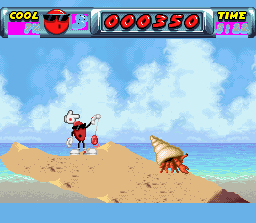
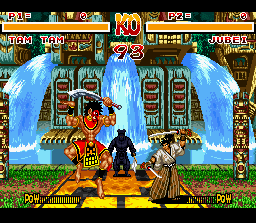
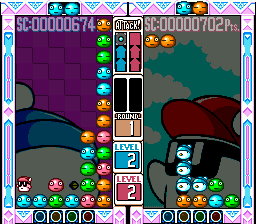
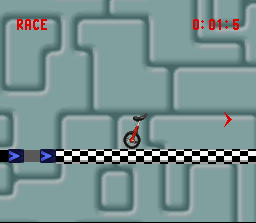
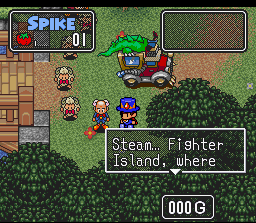
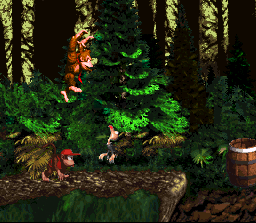
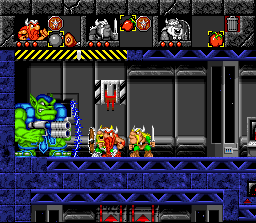
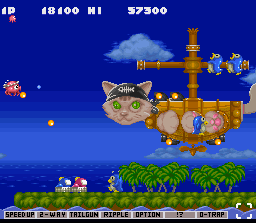
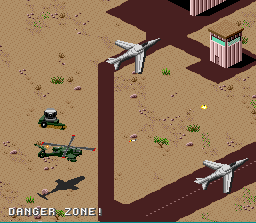
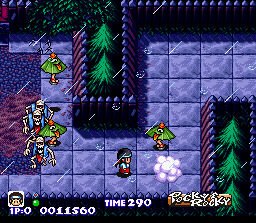
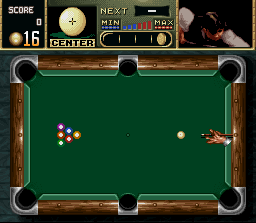
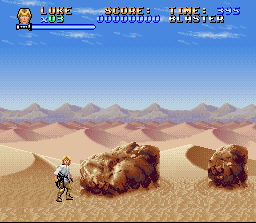
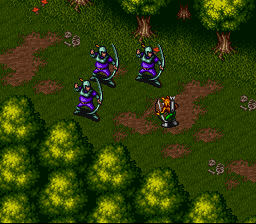
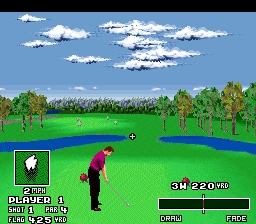
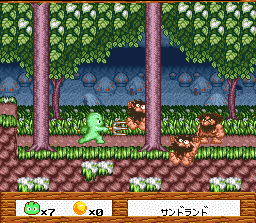
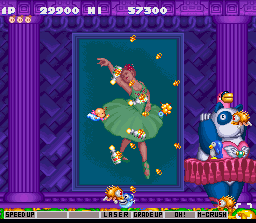
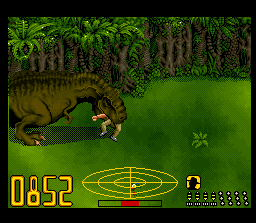
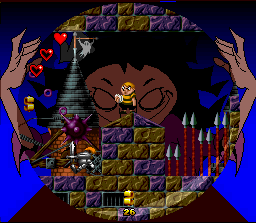
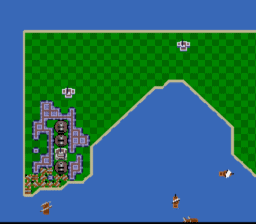
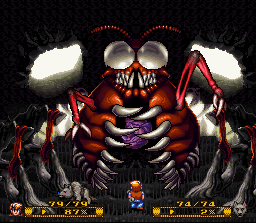
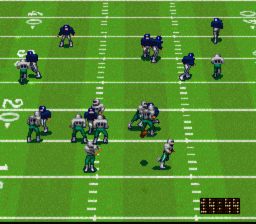
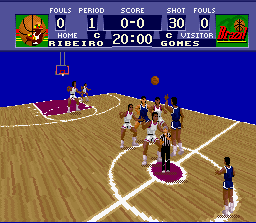
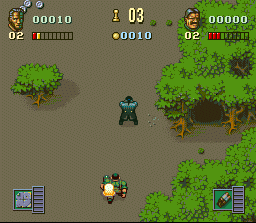
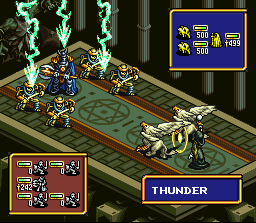
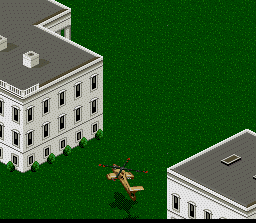
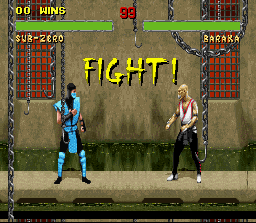
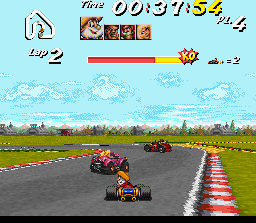
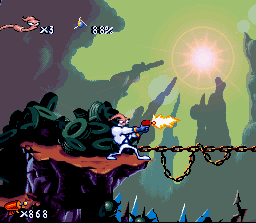
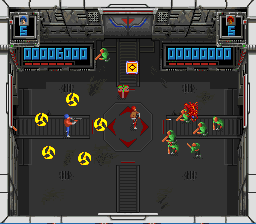
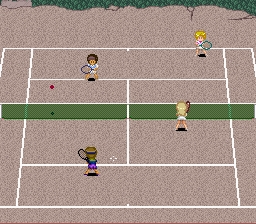
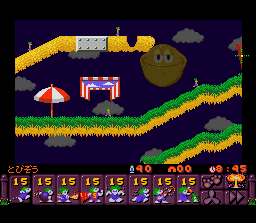
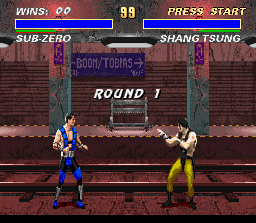
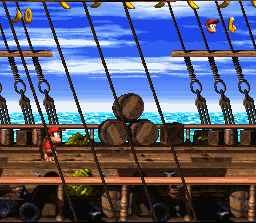
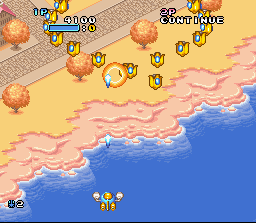
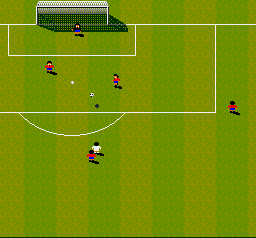
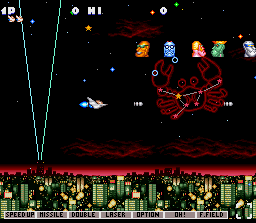
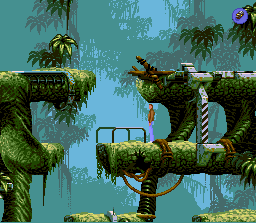
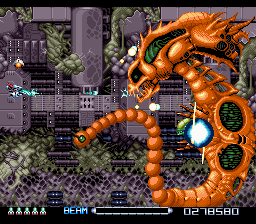
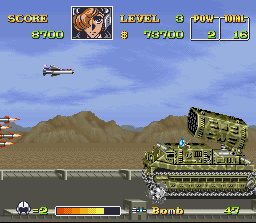
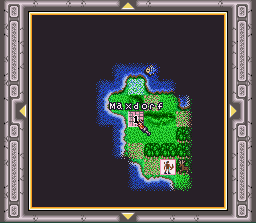
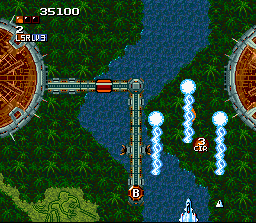
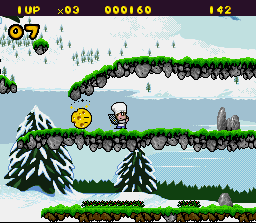
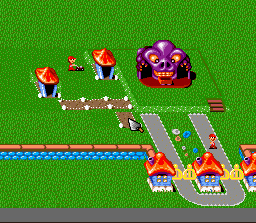
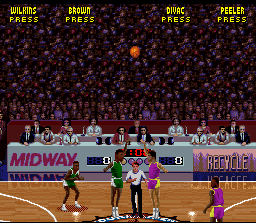
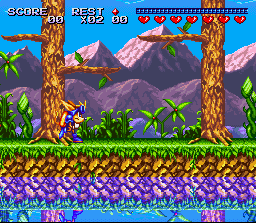
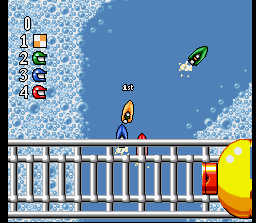
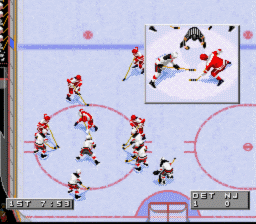
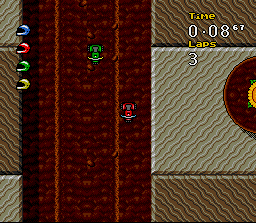
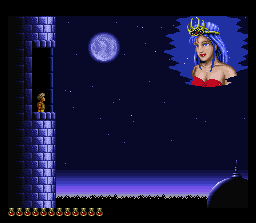
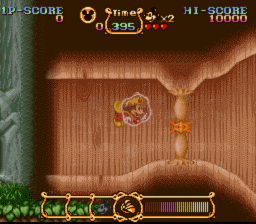
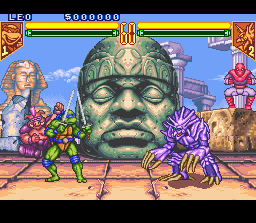
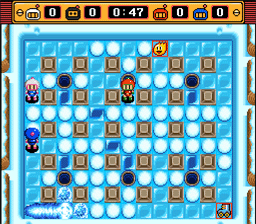
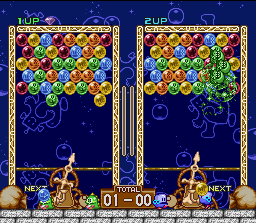
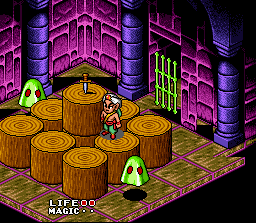
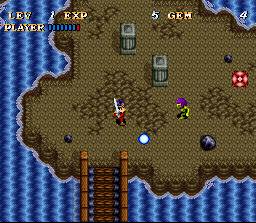
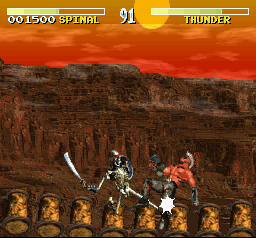
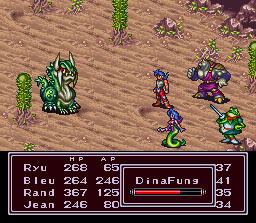
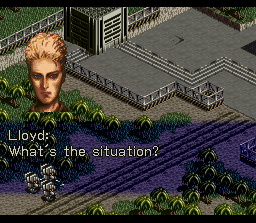
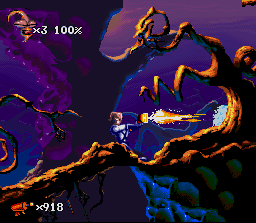
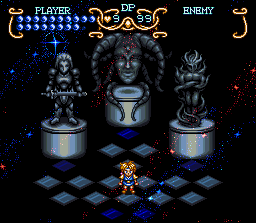
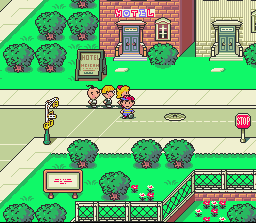
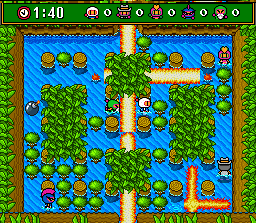
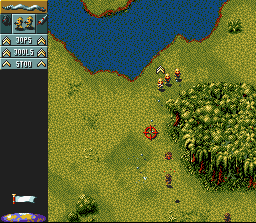
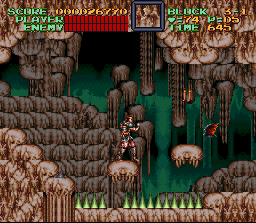
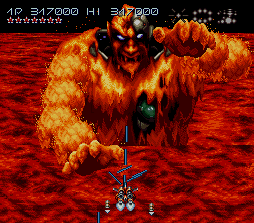
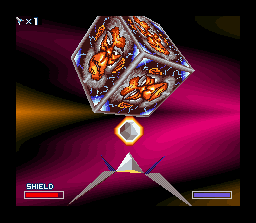
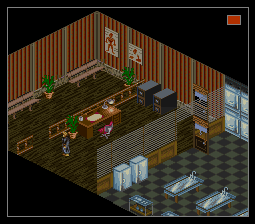
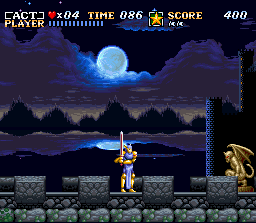
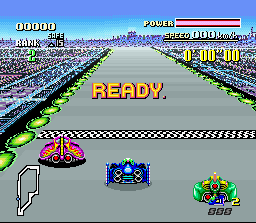
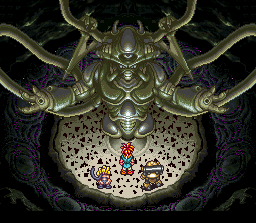
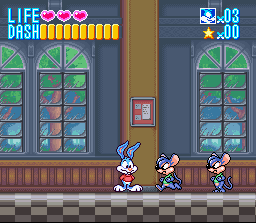
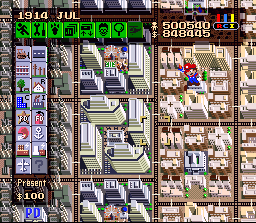
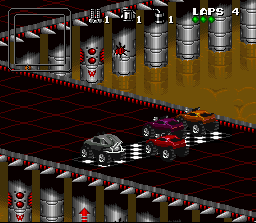
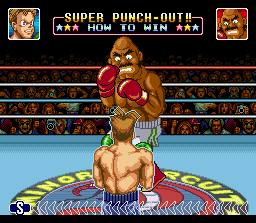
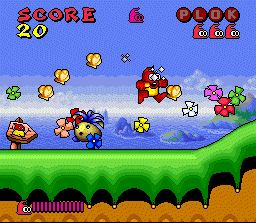
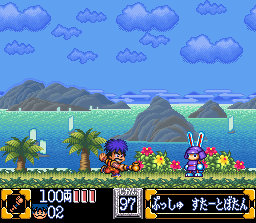
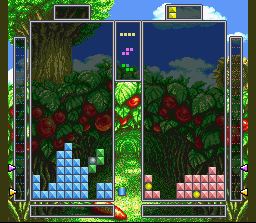
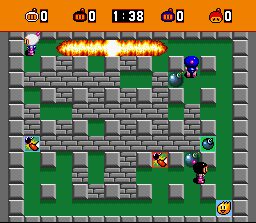
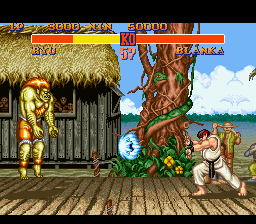
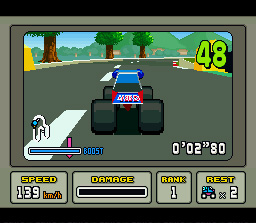
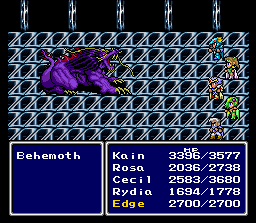
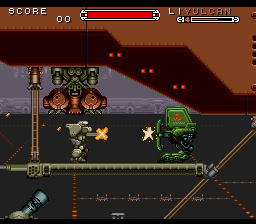
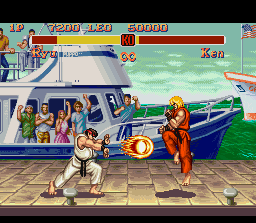
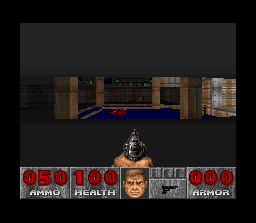
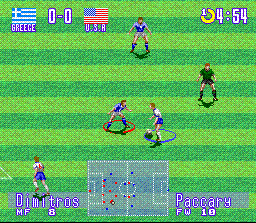
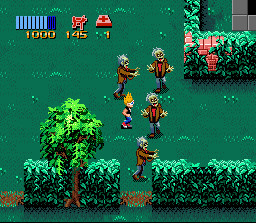
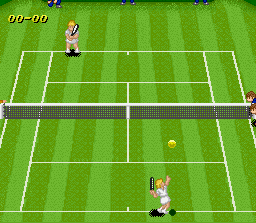
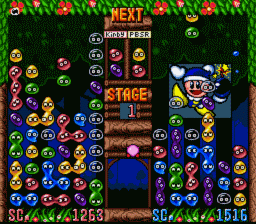
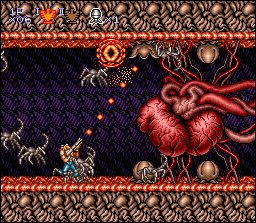
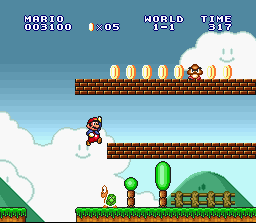
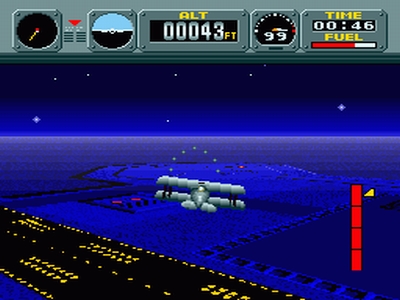
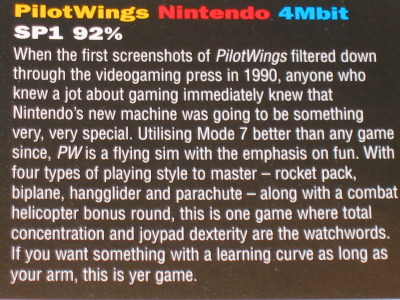
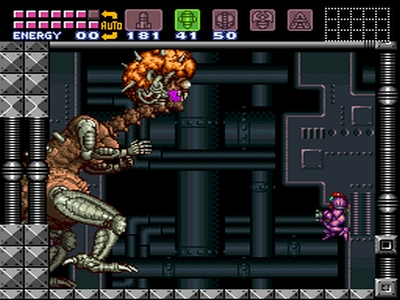
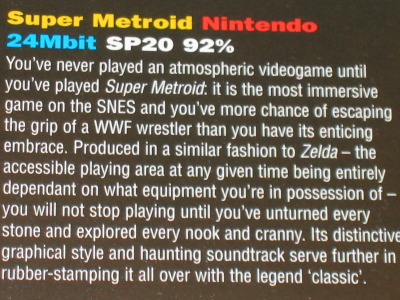
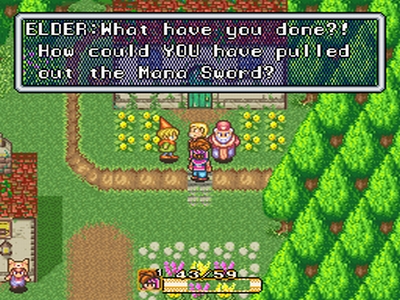
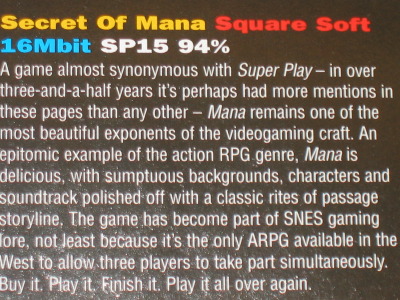
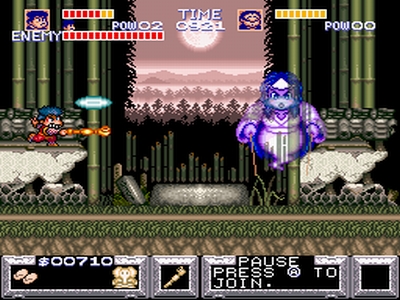
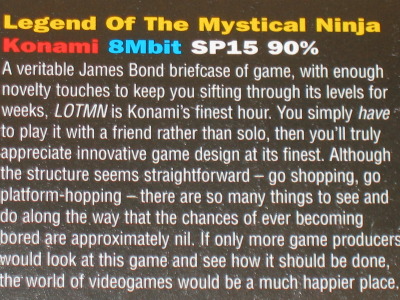
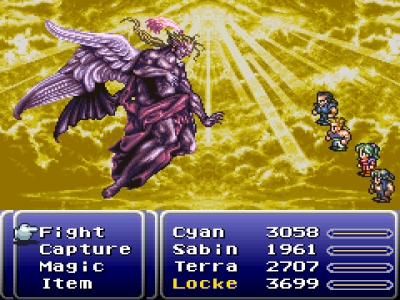
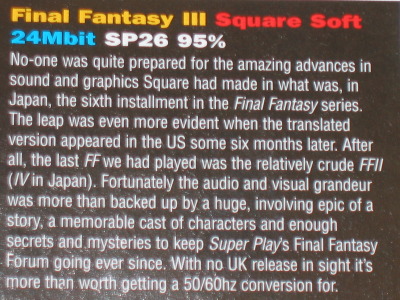
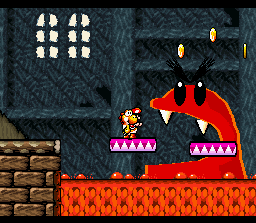
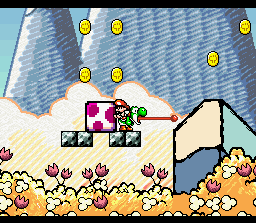
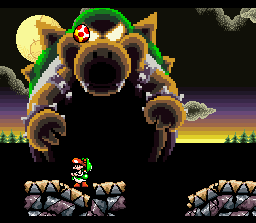
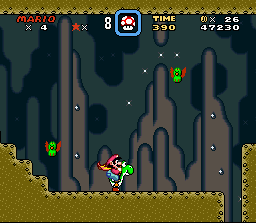
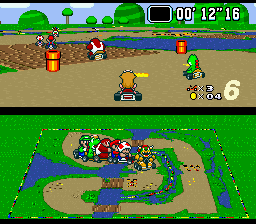
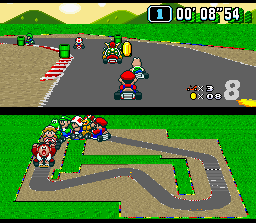
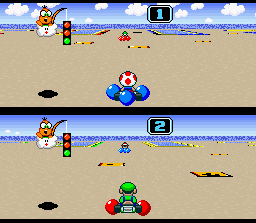
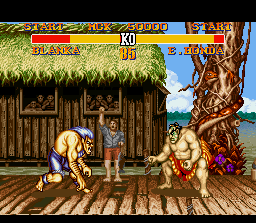
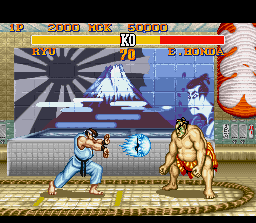
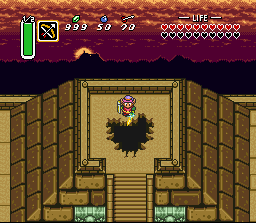
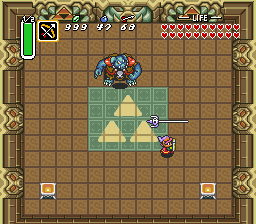
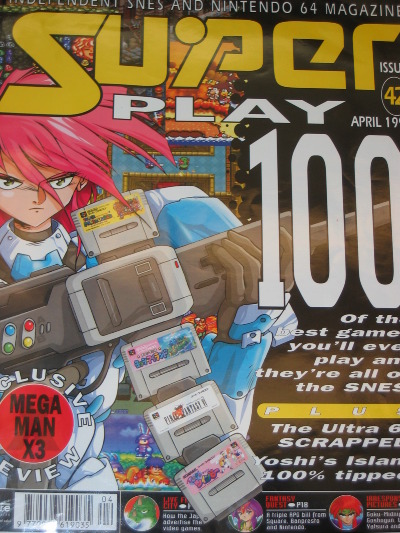
I think you meant “most notably, Super Mario RPG: Legend Of The Seven Stars” as the most glaring omission. Still a great list, and because of the differences between the tastes of British gamers and American gamers, lots of choices that wouldn’t have made your average list, making it unique to this day.
Are you still working on your own personal list? I’d love to see that as I’ve been a fan of your site for years.
Hey Logan, I should edit this article to clarify certain things. Super Play published this issue in April 1996 but they probably made the list in January or February of 1996, just before Super Mario RPG came out. So that explains its omission — it wasn’t released in time. And I agree with you regarding the difference in taste between British and American gamers; the list is a bit different from most other lists I’ve seen over the years.
To answer your last question, yes I am definitely still working on my own personal list. Realistically, it won’t be out earlier than late 2020… but it may take until 2021 or even 2022 if I really want to take my time and squeeze as much out of the library as I can before releasing such a list. However, rest assured it’s still in the works and I’m enjoying the journey. Thanks for being a long time fan and that list is coming one day! Just not any time soon-ish, but it’ll absolutely be out before all is said and done. Cheers mate
So, how is that list coming along?
I’m real interested to see what titles you select and what level of detail you put into such an article….
Kirk, I appreciate you asking that. I’ll be perfectly honest with you… I still have plans to create and launch that list but… it probably won’t be as detailed as it would have been had I created it when I was at the peak of my SNES interest (circa 2018 or so). Since then I’ve gotten married and rediscovered my love for literature so my interests are now split in different directions whereas SNES dominated my free time from 2006-2018.
I still love and play the SNES to this day (the wifey and I play Tetris Attack at least 4 times a week) but the passion is definitely different. I haven’t touched my top X list in a good while, but I do want to come back to it eventually. However, the info for each game will probably be kept to a mere paragraph or so… for the sake of brevity and also, like I said, my SNES interest isn’t what it once was. Perhaps this isn’t what you were hoping to hear, but I don’t want to BS anyone, either. I do plan to continue writing SNES reviews again shortly. In fact, believe it or not, I hope to get one out this summer at the very least. I know it’s been a while, and as I’m sure you can see from the latest updates on RVG for the past year or so, the book bug has bit me something fierce. Very similar to how the SNES did way back in 2006.
In short, yes, the top list article is still in the works. When will it be launched? I have no clue. I’m putting no deadlines or pressure on myself here. I hope that whenever it is ready to go though that it will be satisfying enough for me to say, “Yeah, I’m good with it.”
The Hebereke’s Popoitto screenshot was actually taken from Hebereke’s Popoon, which is a completely different game.
Ah, thank you for that correction.